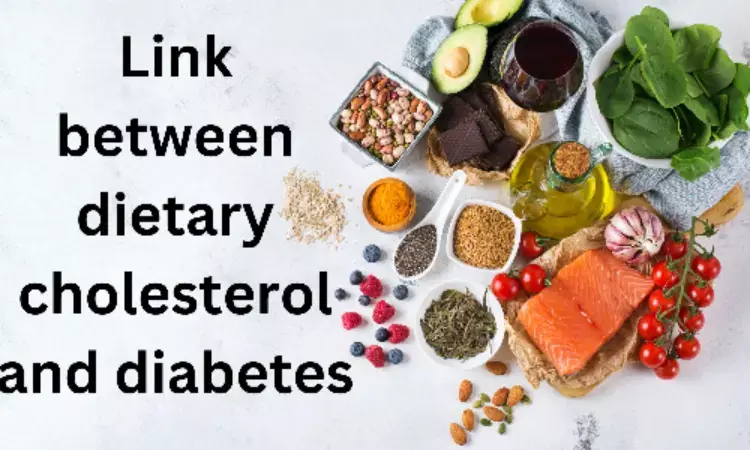- Home
- Medical news & Guidelines
- Anesthesiology
- Cardiology and CTVS
- Critical Care
- Dentistry
- Dermatology
- Diabetes and Endocrinology
- ENT
- Gastroenterology
- Medicine
- Nephrology
- Neurology
- Obstretics-Gynaecology
- Oncology
- Ophthalmology
- Orthopaedics
- Pediatrics-Neonatology
- Psychiatry
- Pulmonology
- Radiology
- Surgery
- Urology
- Laboratory Medicine
- Diet
- Nursing
- Paramedical
- Physiotherapy
- Health news
- Fact Check
- Bone Health Fact Check
- Brain Health Fact Check
- Cancer Related Fact Check
- Child Care Fact Check
- Dental and oral health fact check
- Diabetes and metabolic health fact check
- Diet and Nutrition Fact Check
- Eye and ENT Care Fact Check
- Fitness fact check
- Gut health fact check
- Heart health fact check
- Kidney health fact check
- Medical education fact check
- Men's health fact check
- Respiratory fact check
- Skin and hair care fact check
- Vaccine and Immunization fact check
- Women's health fact check
- AYUSH
- State News
- Andaman and Nicobar Islands
- Andhra Pradesh
- Arunachal Pradesh
- Assam
- Bihar
- Chandigarh
- Chattisgarh
- Dadra and Nagar Haveli
- Daman and Diu
- Delhi
- Goa
- Gujarat
- Haryana
- Himachal Pradesh
- Jammu & Kashmir
- Jharkhand
- Karnataka
- Kerala
- Ladakh
- Lakshadweep
- Madhya Pradesh
- Maharashtra
- Manipur
- Meghalaya
- Mizoram
- Nagaland
- Odisha
- Puducherry
- Punjab
- Rajasthan
- Sikkim
- Tamil Nadu
- Telangana
- Tripura
- Uttar Pradesh
- Uttrakhand
- West Bengal
- Medical Education
- Industry
Low dietary cholesterol intake vital to prevent diabetes, especially for people at higher CV risk

China: According to a study published in Nutrition, Metabolism and Cardiovascular Diseases, the researchers have concluded that a positive dose–response association exists between the consumption of Dietary Cholesterol (DC) and the incidence of Type 2 Diabetes Mellitus (T2DM). This is common in western countries. The researchers have advised that taking a low intake of DC prevents T2DM, which is essential for those at greater risk of cardiovascular disease.
Dietary cholesterol, a prevalent nutrient in daily life, has been associated with impaired pancreatic β cell function.
Some studies show an association between DC and diabetes incidence, while some portray null association.
In 2013, American Diabetes Association (ADA) recommended restricting DC consumption to less than 300 mg daily. This was changed in 2015.
The background could be more evident in this context. Considering this, a meta-analysis was done to evaluate the dose–response relationship between DC consumption and the incidence of T2DM. The lead researcher of the study was Li et al.
The study could be summarised as follows:
- The authors researched PubMed, Embase, and the Cochrane Library database.
- The keywords used in the search were “dietary cholesterol” paired with “diabetes”.
- The incidence of T2DM was the primary endpoint.
- Fourteen thousand two hundred seventy-two articles by database and manual searching were identified.
- Fourteen thousand one hundred fifty-one were excluded, and 121 potential articles were selected. The studies included had a prospective design.
- Finally, the meta-analysis included 11 studies with 355 230 subjects.
- There were eight studies conducted in western countries and three from eastern countries.
- The mean age range was 49 to 73.2 years.
- The follow-up range was 5.0 to 20.8 years.
- The highest DC consumption was tied to an increased risk of T2DM, with an RR of 1.15 compared to the lowest DC consumption.
- The association was more evident in western countries, with an RR of 1.19 per subgroup analysis.
- The RR in eastern countries was 1.19.
- The pooled RR was 1.05, 1.06 and 1.01 for the incidence of T2DM, in western and eastern countries, respectively. (For 100 mg/d increment in DC intake)
To conclude, there is a positive dose–response association between the consumption of DC and the incidence of T2DM in western countries.
The researchers said our results advise low intake of DC for preventing T2DM, especially for high cardiovascular-risk populations.
As acknowledged, the work was supported by the National Natural Science Foundation of China and PUMC Youth Fund and Fundamental Research Funds for the Central Universities.
Further reading:
Li, Yuehua, et al. “Dietary Cholesterol Consumption and Incidence of Type 2 Diabetes Mellitus: A Dose–response Meta-analysis of Prospective Cohort Studies.” Nutrition, Metabolism and Cardiovascular Diseases, vol. 33, no. 1, Elsevier BV, Jan. 2023, pp. 2–10. Crossref, https://doi.org/10.1016/j.numecd.2022.07.016.
BDS, MDS in Periodontics and Implantology
Dr. Aditi Yadav is a BDS, MDS in Periodontics and Implantology. She has a clinical experience of 5 years as a laser dental surgeon. She also has a Diploma in clinical research and pharmacovigilance and is a Certified data scientist. She is currently working as a content developer in e-health services. Dr. Yadav has a keen interest in Medical Journalism and is actively involved in Medical Research writing.
Dr Kamal Kant Kohli-MBBS, DTCD- a chest specialist with more than 30 years of practice and a flair for writing clinical articles, Dr Kamal Kant Kohli joined Medical Dialogues as a Chief Editor of Medical News. Besides writing articles, as an editor, he proofreads and verifies all the medical content published on Medical Dialogues including those coming from journals, studies,medical conferences,guidelines etc. Email: drkohli@medicaldialogues.in. Contact no. 011-43720751


